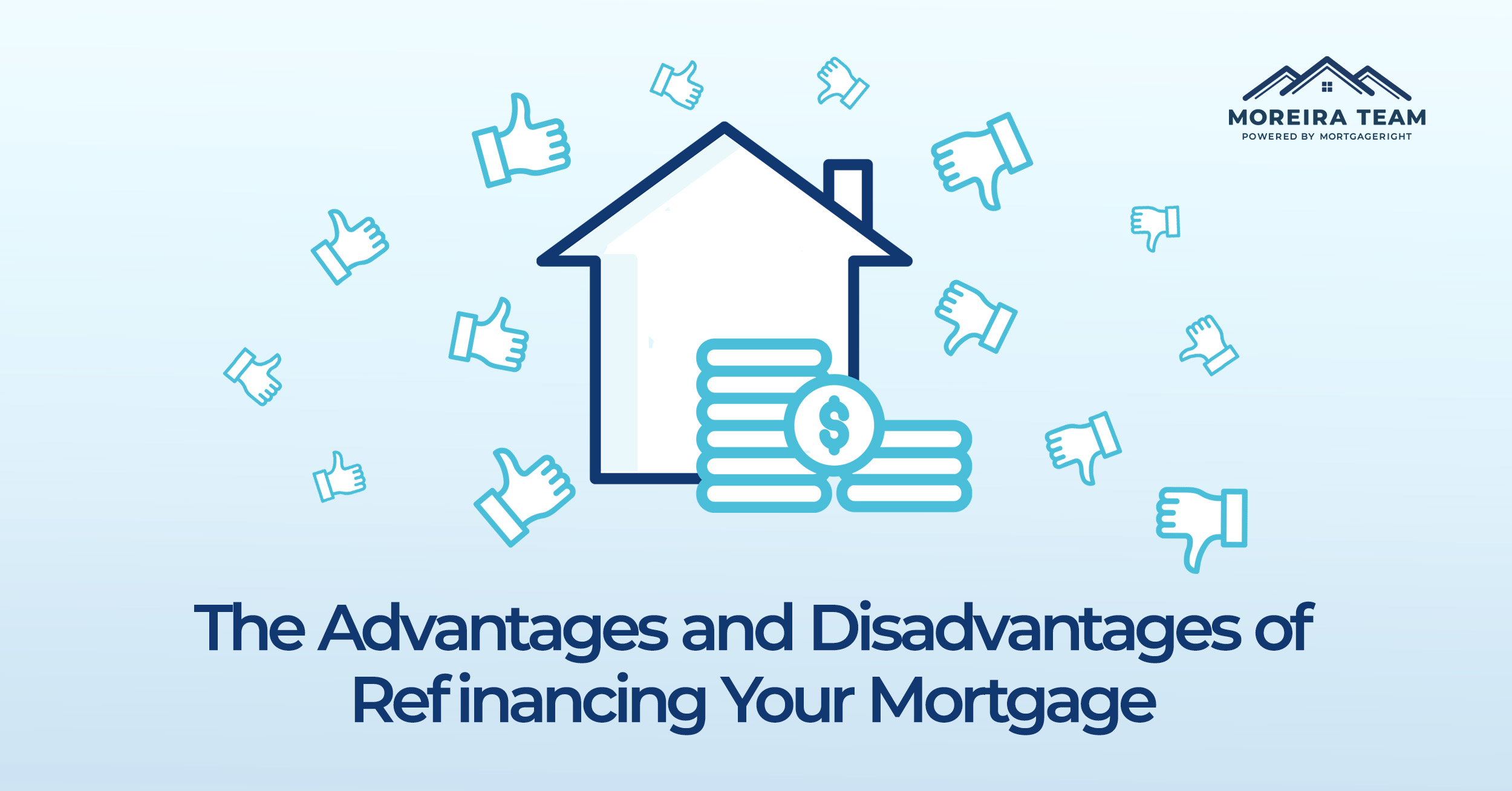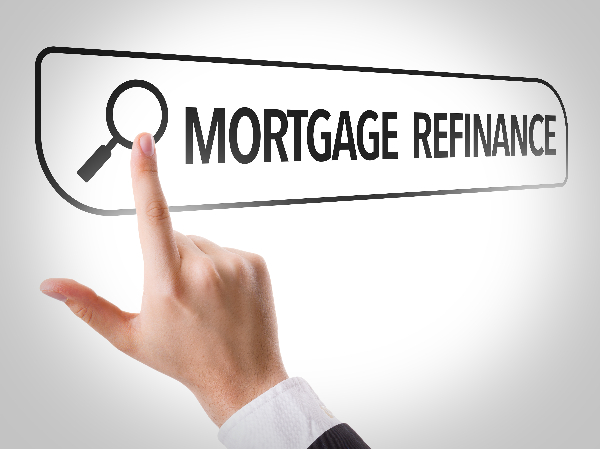
In this article
- Advantages of Refinancing
- 1. A Shorter Loan Term Allows You to Pay It Off Quicker
- 2. You Will Likely Pay Less In Interest Over the Loan Term
- 3. You Can Lower Your Monthly Payments
- 4. You Can Have More Predictable Payments
- 5. A Cash-out Refinance Can Help Pay for Some Life Expenses
- The Disadvantages of Refinancing
- 1. It Might End Up Costing You More
- 2. The Money Saved Might Not Be Worth All the Work
- 3. You Might End Up With A Higher Monthly Payment
- 4. Your Home Equity Can Decrease
- How Can You Save On Interest Without Refinancing?
- Get a home equity line of credit (HELOC)
- Advantages and Disadvantages Are Not the Same For Everyone
For every homeowner, a big question always comes up down the road: is it worth refinancing your mortgage? People refinance for a variety of reasons. They might want to take advantage of lower interest rates. They might want to shorten their loan terms. They might want to use some of their home equity to fund other expenses in their lives. However, there are also drawbacks to refinancing. If homeowners don’t analyze their current situation carefully, they might do a lot of work without much to show for it, or they might result in paying more in the long run.
If you’ve been thinking about refinancing, review these pluses and minuses to make an informed decision.
Advantages of Refinancing
There are some general benefits to refinancing, but the advantages really boil down to what the new loan terms are, what your goals are, and the specific circumstances that you are currently facing in your life. Here are some of the benefits you can expect, but keep in mind that there might be something you are giving up.

1. A Shorter Loan Term Allows You to Pay It Off Quicker
You can choose a shorter loan term. A common choice is refinancing an old 30-year mortgage to a 15-year mortgage. This allows you to pay off your loan and build equity in your house faster. You can own your house debt-free sooner and not be burdened with a mortgage after it is paid off. After that, you will have more money every month to spend on other things.
2. You Will Likely Pay Less In Interest Over the Loan Term
When you have a shorter loan term, you make less monthly payments, and that means fewer months in which you have to pay interest. However, what if you keep the same length of loan term? It is still possible to pay less over the life of the loan.
If the new interest rate is lower than your original rate, the total interest you pay over the life of the loan will be less. So, you can still save money.
Here is a typical scenario to illustrate this:
Let’s say you took out a 30-year mortgage for $200,000 at a 4% interest rate. If you make 24 payments, or two years, you would have paid $15,728 in interest. If you paid all 360 months, or 30 years, the total interest you would have paid would be $143,739. What if, after two years into the loan, you decide to refinance to a new 30-year mortgage at 3.5% interest? Because you already made 24 payments, the balance of your loan is now $192,812. If you make 360 monthly payments on your new 30-year mortgage, the total interest you pay over 30 years would be $118,880.
But let’s not forget the 24 monthly payments that you already paid before you refinanced. Adding the interest you paid for those two years will bring you a grand total of $134,608 that you paid in interest when you paid off your house. So, by refinancing to a lower interest rate, you save over $9,000 in total interest payments.
3. You Can Lower Your Monthly Payments
If your new mortgage has the same term as your old mortgage, you are giving yourself more time to pay off the house, which means the monthly mortgage payment would be lower. If you can get a lower interest rate, your monthly payment would be even lower.
Consider this scenario using the same numbers in the example above.
With a $200,000 30-year mortgage at 4%, your monthly mortgage payment would be $954.
After two years, you decide to refinance to a new 30-year mortgage at the same 4% interest rate. Since your loan balance is now $192,812, paying that over 30 years will mean a monthly mortgage payment of $920.
What if you were able to refinance it for 30 years at a rate of 3.5%? Your monthly payment would be $865.00.
4. You Can Have More Predictable Payments
This applies if you took out an adjustable-rate mortgage. Refinancing your loan to a fixed-rate mortgage can stabilize your monthly payments. The interest rate for an adjustable-rate loan is based on market forces. It can go up one month and down another month. That means your monthly payments can go up and down, too.
If you have a fixed-rate mortgage, the interest rate you initially get will remain the same over the life of the mortgage. The amount of principal and interest you pay each month is the same every month. Knowing exactly what your house payment is every month can help you figure out your budget much easier.
5. A Cash-out Refinance Can Help Pay for Some Life Expenses
If you have equity in your home, you can borrow against that to get funds to pay for other kinds of important life expenses. This is called a cash-out refinance. Basically, you borrow more than what your current mortgage balance is. The difference is the cash that you will use for other expenses.
Here is a scenario to illustrate:
Your home is worth $200,000, and you have a mortgage of $150,000. That means you have $50,000 in home equity. You want to remodel your kitchen, and you need $20,000. So, you refinance your mortgage while adding $20,000 to the $150,000 loan balance. Your new mortgage is $170,000. Your home equity goes down to $30,000.
So, as you can see, getting the right mortgage can have multiple benefits.
The Disadvantages of Refinancing
Despite the benefits, there are situations when a refinance is not a good decision. Again, it depends on your individual circumstances. Here are some reasons why you should not refinance.
1. It Might End Up Costing You More
Refinancing might get you a better rate and a lower monthly payment, but there are fees that might offset these financial benefits.
Let’s use the numbers in the above example again to illustrate.
After paying your original 30-year fixed rate mortgage for 24 months, you decide to refinance at a lower rate. Your current loan balance is $192,812, and your new monthly payments at the lower rate saved you $9,131 in total interest paid, including the 24 months of interests paid on your original loan. However, let’s factor in closing costs. These can be 2 to 3 percent of your loan balance, which means the cost can be $3,856 to $5,784.
If you pay this fee out-of-pocket on the day of closing, your net savings from refinancing would only be about $3,347 to $5,275.
You also need to ask yourself if the money that you have to pay now in closing costs is worth the savings over the next 30 years. If you plan to move before you break even, that is another part of the equation that can affect your decision.
2. The Money Saved Might Not Be Worth All the Work
When you account for fees, the savings from refinancing might not be as much as you had hoped, so you should ask yourself if this is worth all the time and effort put into the refinancing process. Even the smoothest refinance process will still require you to provide a slew of financial documents, getting your house appraised, and filling out forms.
3. You Might End Up With A Higher Monthly Payment
If you want to refinance to shorten your loan term so you can pay off your house faster, your monthly mortgage payment will be higher. A typical example is refinancing a 30-year loan to a 15-year loan.
Here is what it looks like:
We will use the example of a $200,000 30-year mortgage at 4%. The monthly mortgage payment is $954. If you refinance that to a 15-year mortgage at a 4% interest rate, your new monthly payment would be $1,479. Even if you were able to refinance at a lower interest rate, say 3.5%, your monthly payment would still be $1,429. So, you have to decide if you can afford to pay a higher monthly mortgage now in return for cutting the life of the loan in half.
4. Your Home Equity Can Decrease
If you are doing a cash-out refinance that lets you borrow against your home equity, you are actually reducing the equity of your property. For instance, if you started with $50,000 in home equity, and you borrow $20,000 against your equity in a cash-out refinance, you will end up with a remaining home equity of $30,000.
How Can You Save On Interest Without Refinancing?
Many homeowners can benefit from a refinance, but it is not the best answer for all homeowners. There are other ways to save money on interest besides refinancing.
Make an extra payment that is toward principal only after you pay your regular monthly mortgage, you can make an extra payment that will pay toward your principal only. That can reduce the total amount of interest paid over the loan term.
Take out a personal loan: You can save money by taking out a personal loan. There are two kinds: a secured loan and an unsecured loan. A secured loan requires you to secure it with your personal property as collateral, and it offers lower interest rates. An unsecured loan does not require you to provide collateral, but the interest rate is a bit higher than that of a secured loan. However, the loan still has a rate lower than that of a credit card.
Get a home equity line of credit (HELOC)
A HELOC uses your home as loan collateral. The lender gives you a line of credit, and you can borrow up to the credit line. The loan is repaid with interest. The interest rate is usually reasonable.
A credit card with 0% interest: These interest-free credit options are usually only offered to people with an excellent credit score.
Advantages and Disadvantages Are Not the Same For Everyone
The decision on whether or not to refinance depends on the individual’s circumstances. With that said, not everyone will agree on the advantages and disadvantages because people will have different views. If you need to make that decision, you need to be clear on why you want to refinance, how long you plan to stay in your current home, if the current interest rates are favorable enough, and how long you want the new loan term to be.
All this information can be overwhelming. If you have questions, you should contact a home loan expert who can help you identify the best refinance or loan options for your current set of circumstances.

